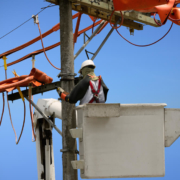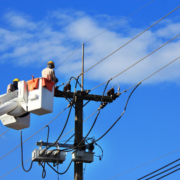Caring for a Loved One with a Traumatic Brain Injury
There are roughly 2.5 million hospitalizations and visits to the emergency room each year for traumatic brain injury (TBI), and more than 5 million Americans are living with a TBI-related disability. When someone suffers from a TBI-related injury, it affects everyone around them. Loved ones are suddenly called upon to become caregivers, and most do not have any prior experience dealing with someone who has this type of condition.
Traumatic brain injury is different from most other medical conditions. The effects of TBI are unique to each individual who suffers from it, and the type of rehabilitation required as well as the amount of time needed for recovery varies widely from person to person. Unlike most other injuries, TBI affects the whole person; i.e., physical, cognitive, emotional, etc.
Physical issues related to traumatic brain injury can include dizziness, headaches, balance problems, and even problems seeing. Cognitive issues can include problems with focus and concentration, processing and understanding information, reasoning, solving problems, making decisions, and in some cases, memory loss. Emotional issues can include impulsive and often inappropriate behavior, mood swings, and general difficulty controlling emotions.
What Can Family Members do for TBI Sufferers?
From the moment you learn that a loved one has traumatic brain injury, your role in their life changes dramatically. For example, you may need to relate to a spouse who has TBI more like a child. The same holds true for children whose parents develop TBI, in this case, it may be a complete role reversal. Adjusting to your new role can be highly stressful, and this makes caring for a loved one with traumatic brain injury an emotionally draining experience.
Here are five important tips to help caregivers of loved ones with traumatic brain injury cope with this difficult situation:
Get Plenty of Rest
Caring for a loved one with traumatic brain injury is both physically and emotionally exhausting. This makes it critical for the primary caregiver to rest as much as possible. This might require some short-term changes while you help your loved one recover. For example, you may need to take some time off from work. Under the Family Medical Leave Act (FMLA), most employers are required to give up to 12 weeks off during a 12-month period to care for a loved one with a serious medical condition. Finally, enlist other family members or friends or even an in-home caregiving service (if your budget allows) to help care for your loved one’s needs.
Rest is not only important for the caregiver, it is also important for the TBI patient. Rest is essential to allow their body and brain time to repair and recover. Be sure your loved one is getting the amount of rest he/she needs to (hopefully) recover more quickly from their brain injury.
Follow all Doctor’s Orders
The recovery path for traumatic brain injury is unpredictable. This makes it all the more important to follow the advice of your doctor. Check in with your doctor before having your loved one resume activities such as driving, exercise, or going back to work. Your doctor will also most likely tell you not to allow your loved one to use alcohol or tobacco. It is very important to follow this advice, because these substances can hinder or even reverse the progress of recovery and do additional damage to the brain.
Be Patient
Caring for a close family member with TBI is not unlike caring for someone with Alzheimer’s or dementia. Those who have been through that experience will tell you that you need to develop (seemingly) infinite patience. To help with this, learn as much as you can about traumatic brain injury, and get connected with some type of support group either online or locally. The more you know and understand about this condition, the easier it will be to exercise patience and cope with the situation.
Be Mindful of the Impact on Younger Family Members
When a family member develops TBI, it affects everyone in the house, even your youngest children. They feel stress like everyone else, but they may deal with it in a different way, depending on their age. Take some time to speak with your family members about what is happening and find out how they feel about it. Do not just assume that because they appear okay on the surface, they are handling it well. It is best to find out as soon as possible if they might need some additional help in dealing with the situation.
Look into a Medicaid Waiver Program
Many states have waivers available for Medicaid eligibility for patients with severe cases of TBI. This may allow your loved one to qualify for Medicaid even if the household earns too much income under normal eligibility guidelines. If you are a resident of West Virginia, you can apply for a traumatic brain injury waiver through the West Virginia Bureau for Medical Services.
Covering your Legal Bases
If your loved one developed traumatic brain injury due to the negligent or reckless actions of another party, you may be entitled to both economic damages (e.g., medical and rehab costs, lost earnings, etc.) and non-economic damages (e.g., physical pain and suffering, emotional distress, diminished quality of life, etc.). To ensure that your rights and interests are fully protected, it is important to speak with an experienced personal injury attorney as soon as possible.
A seasoned injury attorney will be able to thoroughly assess the severity of the injury, how it occurred, and other critical details of the case and let you know your best legal options. Before accepting any kind of settlement offer from an insurance party or anyone else, make sure you consult with skilled legal counsel so you are able to make the most informed decision possible regarding the legal path you want to pursue.





